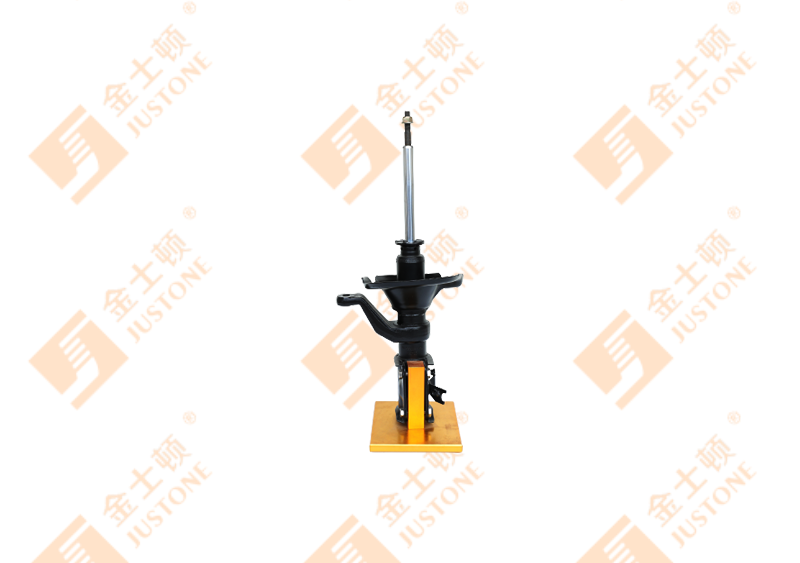Didn't find a product that suits you?
Contact us for the latest news.
The response time and stability of Trailer Shock Absorbers are key factors affecting the performance, safety and comfort of trailers.
The response time of trailer shock absorbers refers to the time delay from the beginning of sensing vibration or impact to the beginning of effective shock absorption under the action of external impact (such as uneven roads, potholes or obstacles). In short, the response time reflects the shock absorber's reaction speed and ability to adapt to unexpected situations.
Different types of shock absorbers have different response speeds. For example, hydraulic shock absorbers usually respond quickly because liquids flow faster than gases or other substances. Gas shock absorbers may have a slightly slower response time because they rely on the compression and expansion of gases.
The damping characteristics of the oil or gas inside the shock absorber directly affect the response time. Liquid damping shock absorbers (such as twin-tube shock absorbers) usually respond quickly, while gas shock absorbers may have a slightly longer reaction time, but they generally provide a smoother ride.
The restoring force provided by the shock absorber's spring during vibration also affects the response time. A stiff spring may result in a quicker response, but may also sacrifice comfort; a soft spring provides a longer comfortable cushioning, but may respond more slowly.
Modern trailer shock absorbers generally respond to vibrations between a few milliseconds and one second. For heavy trailers or trailers with large loads, the response time may be slightly longer, but it is usually still able to provide adequate shock absorption.
Fast response time can reduce body sway and improve handling stability, especially when encountering obstacles, sudden braking or unexpected road conditions during driving, the shock absorber needs to quickly adapt and relieve the impact.
The stability of a shock absorber usually refers to its performance retention and fatigue resistance during long-term use. A stable shock absorber can maintain its shock absorption effect under various road conditions, ensuring the stable driving of the trailer without premature wear or loss of effectiveness.
The stability of a shock absorber is closely related to its material and internal structure. For example, stainless steel or aluminum alloy shock absorbers are generally more resistant to corrosion and wear, and can maintain stable performance for a longer time. High-quality oils and gases can also maintain good stability while reducing friction.

The damping design of the shock absorber affects its stability. Proper damping design can adjust the shock absorption effect in time when the trailer load changes, avoiding excessive or insufficient damping force that affects the trailer stability. Many modern shock absorbers are equipped with adjustable damping systems, which can adjust their stability according to changes in load, speed or road conditions.
Temperature changes have a significant impact on the stability of shock absorbers. High temperatures may cause the viscosity of the oil to decrease, thereby reducing the shock absorption effect, while low temperatures may cause the oil to thicken and slow down the response speed. High-quality shock absorbers usually use high-temperature and low-temperature resistant oils, as well as other high-heat-resistant materials to ensure stability in various climate conditions.
The heavier the trailer load, the greater the pressure and vibration the shock absorber needs to withstand. Shock absorbers with poor stability may fail or fatigue under heavy loads or long-term loads. Selecting shock absorbers that are suitable for the trailer load and performing regular maintenance are key to maintaining shock absorber stability.
High-stability shock absorbers can provide a smooth driving experience and effectively avoid body shaking, jumping and instability. When passing uneven roads, sharp turns or speed bumps, the body can quickly restore the horizontal posture to ensure the control and safety of the trailer.
Low-stability shock absorbers may cause excessive vibration and shaking of the trailer during driving, and even affect the ground contact of the wheels, increase the braking distance, and reduce the accuracy of control.
High-response and good-stability shock absorbers can provide excellent performance under changing road conditions, respond quickly and maintain the stability of the vehicle body, ensure the smooth driving of the trailer, and provide higher comfort and safety, especially when running on long-distance transportation or rugged roads.
Low-response and low-stability shock absorbers may cause the trailer to have a large body swing when braking suddenly, turning or facing obstacles, which increases the difficulty of the driver's operation and even affects the safety of the trailer.
Choosing shock absorbers with reasonable design and high-quality materials can significantly improve their response speed and stability. For example, hydraulic shock absorbers, gas shock absorbers, and gas-oil hybrid shock absorbers are all designed to better respond to sudden vibrations.
Regularly check the oil, gas, and sealing of the shock absorber to avoid performance degradation due to wear and aging. Timely replacement of worn parts, such as oil seals and springs, can effectively maintain the stability of the shock absorber.
Ensure that the specifications and performance of the shock absorber match the load capacity of the trailer. Too heavy a load may cause the shock absorber to fail prematurely, while too light a load may not provide effective shock absorption.
The response time of trailer shock absorbers is usually fast, and they can effectively react between a few milliseconds and one second. Their stability depends on factors such as internal structure, material, design and load. High-quality shock absorbers can provide faster response and better stability, and can keep the trailer running smoothly under various road conditions. Regular inspection and maintenance, and the reasonable selection of shock absorbers that match the load are the key to ensuring the stability and safety of the trailer.